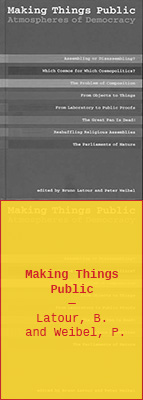GREGOIRE WALLENBORN

Grégoire Wallenborn, physicist and philosopher by background, has become progressively undisciplinary through the coordination of multiple interdisciplinary projects with sociologists, engineers, designers, economists, physicists, and also consumer organisations, consultants and companies. He has first developed his researches in STS (Science and Technology Studies). He turned to the urgent question of sustainable development in 2002, and is now a researcher at the Centre for Studies on Sustainable development (IGEAT-Université Libre de Bruxelles). He has led various studies about the perception of sustainable development by the societal actors, scenario building methodologies, sustainable consumption patterns, domestic energy consumption, including aspects of social inequalities and rebound effects, ecodesign and user-centered design. He is currently working on the place of users in the development of smart grids.
FROM USER EMPOWERMENT TO PRACTICE DESIGN
If sustainable development is defined as a space of negotiation between heterogeneous actors (industry, government, NGOs, trade unions, etc.), it is noticeable that all actors have not the same power. As sustainability suggests, weak actors have also to participate to the negotiation: non-humans, social diversity and future generations. In this presentation, I aim at analysing how design might reinforce these neglected actors. Ecodesign tools consider non-humans in a technocentric conception of the environment. How could we extend ecodesign towards more anthropocentric and ecocentric views on our environments? How could we learn to negotiate with new actors, including future generations? I suggest that a new notion of negotiation must be experimented and that design might be a place for this experimentation.
Through the case of household electricity consumption, smart metering and demand response, I show the limits of the current design of electricity grid and appliances. Consumers are supposed to be activated or empowered through various information systems. The user is however endowed with contradictory powers: computing and acting fast, on one hand, and inertia and incompetency, on the other hand. Information has poor effects on behaviour change: practices are greatly scripted by the networks of provision. The automatisation of decisions is on its way, but I show that the delegation of actions to technology usually leads to rebound effects through the multiplication of practices. Our bodies are increasingly equipped and extended. The issue of sustainability is not the (ir)responsibility of people, but the multiplication of practices that requires evermore non-humans to be performed.
In focussing on practices rather than users, I suggest that design might contribute to sustainability. Sustainability is not given, it is a creation under constraints (as any creation, but here constraints are compelling). I conclude with questions that a practice design might ask. What are the multiple constraints that design has to negotiate? What are the beings involved in the practice? How are actions and power distributed among these beings? How is the body involved in the practice?
SUGGESTED BOOKS



Interesting questions / statements
Nobody knows precisely what sustainable development or sustainable design might mean. I suggest that sustainable development can be historically described as a space of negotiation: that way abstains from giving too much consistency to a fuzzy notion. We can however observe that the current strength balance in negotiating is not fair. The space of negotiation is dominated by strong actors: companies in competition striving for profit (or capitalism). If sustainable development is defined as independent pillars, economic considerations are orienting much more our development than social and environmental ones. The equivalence of natural and social capitals with economic capital results in a weak sustainability. It is therefore necessary to ponder afresh the meaning of sustainable development. Could design help to find new ways to envisage a sustainable world?
There is an old debate in sociology about the roles and power to be given to individuals and to society. In order to escape this sterile debate, practice theory takes practices as the unit of social analysis, namely as the unit of doings which make sense for their performers. A practice is compound of a human body (or several ones), material objects, skills, rules, infrastructures, etc. and can be identified through space and time: eating, cooking, gardening, sleeping, … What difference does it make to designers to adopt a practice point of view?
Sustainability calls for 1) a reduction of practices that involve resources, 2) limiting delegation to technology, 3) an active involvement of bodies. What are then practices that require the attention of people and their bodies, impeding them to do other things or to delegate too many tasks to machines, and are also enjoyable?